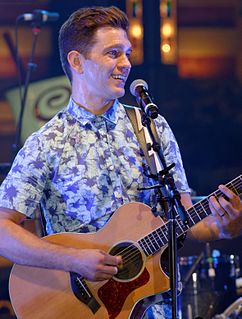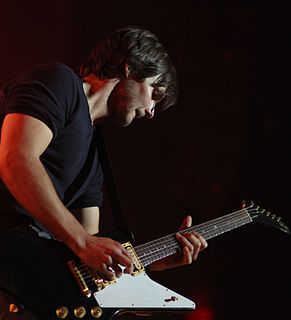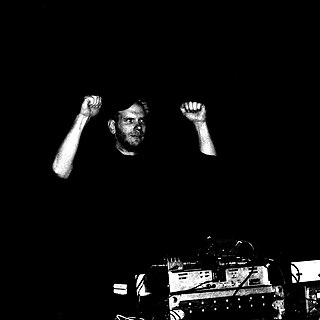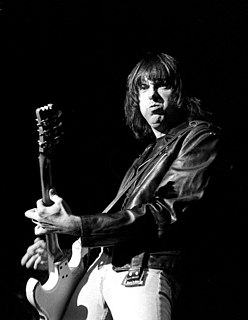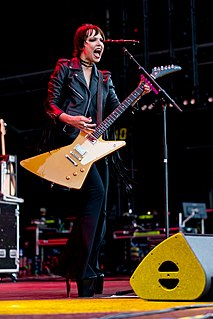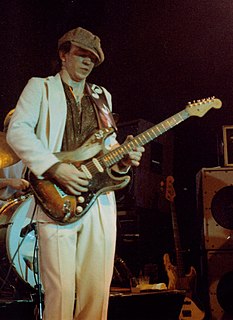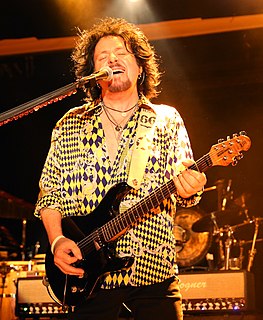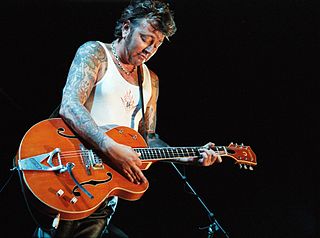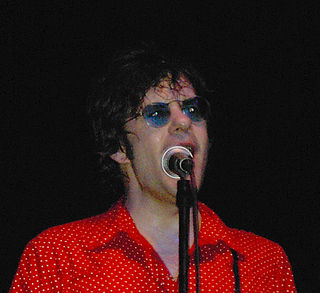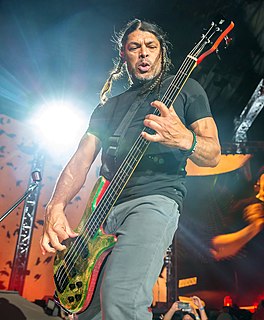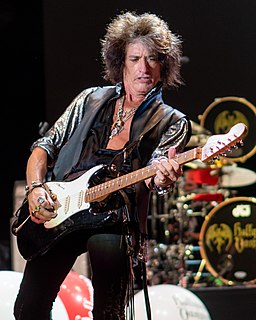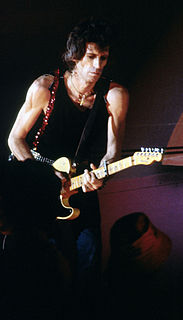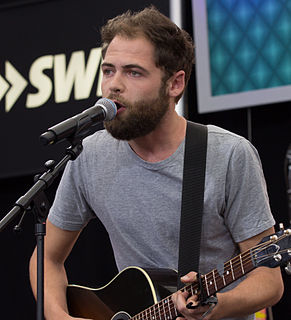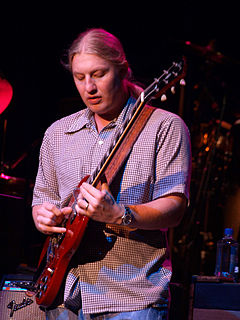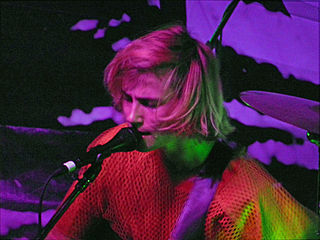Top 88 Amp Quotes & Sayings - Page 2
Explore popular Amp quotes.
Last updated on December 22, 2024.
In a typical day, I would wake up about 8 A.M., pile all my stuff into my mom's minivan - my guitar, my amp, CDs to sell, a table and a rug - drive it down to the street, and unload it all. I'd wait until about 12, then play for two hours. You could only play in two-hour intervals, so then I would move it all somewhere else.
When I'm at home or in the studio, I have a 1963 Martin. It's a D-28, and I love that guitar. I write on that guitar, and it's the first guitar that I put a pickup in and ran through an amplifier, splitting the signal to the amplifier and a DI or in the studio mic'ing it traditionally and putting an amp in the other room.
For me, the tabletop is an easy way to eliminate the possibilities of chords, modes, melodies, and harmonies. It kind of confines you to this other sound sphere. I know anyone facing this kind of dilemma could always just find another instrument more suitable to their needs, such as a sampler or synthesizer, but I figured I have a guitar and amp so why not just use them?
Some bands blow it before they even play. The most important moment of any show is when a band walks out with the red amp lights glowing, the flashlight that shows each performer the way to his spot on the stage. It's crucial not to blow it. It sets the tempo of the show; it affects everyone's perception of the band.
I have tried every amp, distortion box, gadget etc. that has ever been made since 1967 to present and nothing has sounded like the Tonebone. It has become an incredible asset to my sound and I recommend this to anyone who is looking for that NATURAL warm sound with sustain for days and days! Buy this now!
My Portuguese uncle had a Portuguese version of a ukulele. The family would pull it out after dinner and play Portuguese folk songs on it. I couldn't wait for him to finish so I could get my hands on it. I was seven or eight years old. And he used to have a Fender amp in his house and an electric guitar. I would spend hours making sounds.
Finally I'd found this way where I didn't need a record label; I didn't need to wait for some phone call to tell me, 'Go and do it'. It's like, I'm going to get up with a bag of CDs and an amp and my guitar and make it happen for myself. That was such a liberating feeling, and I think it was the start of everything.
I love the balls-to-the-walls rule-breaking approach the Beatles had in the studio (which I emulate), although I don't try to make my songs "sound" like their songs. But every time I crank a knob of some piece of equipment, or plug an instrument into the "wrong" amp/effect, I am channeling the Beatles.
The idea is: You played to 100 people this week in Europe, and then next week you can play to 200. It's an investment in that territory. But it can lose money because it's very expensive to go to Europe. You can't really just say, like, "Oh, we're gonna take our van and drive to California tomorrow." It's more like, "Oh, we have to fly to London and rent three guitar amps, a bass amp, drums; buy all these flights for four people; hire a driver."
I used a fifties Les Paul custom on most of the stuff. I also used a Strat, a newer Strat. I had a million guitars in there but I used the Strat & the Les Paul in just about everything. There were a lot of different amp choices, I was working with a pro tools plug-in which is like an amplifier stimulator. The possibilities with something like that are just endless.
